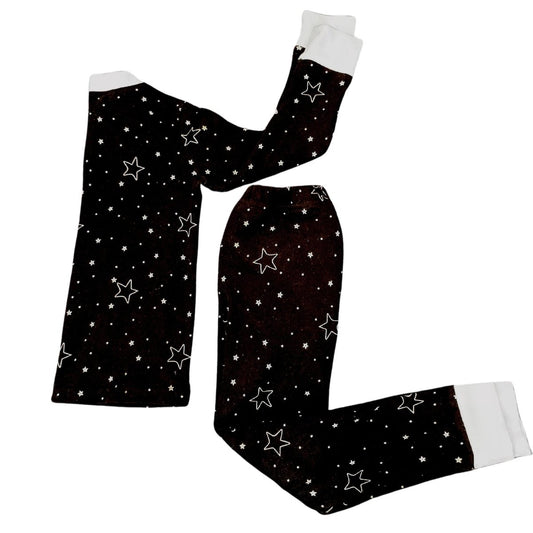Collection: Products for Bedwetting
Bedwetting, or enuresis, is a common problem that affects many children, and those with disabilities may experience this issue at higher rates. Children with disabilities often have medical conditions that can cause or contribute to bedwetting, and they may have difficulty controlling their bladder or bowels due to neurological or developmental issues.
We have a range of products for adults and children to help with bedwetting, from reusable incontinence underwear and pyjamas through to waterproof sheets and pads.
Our aim is that the wearer is comfortable to ensure a good nights sleep, while taking the pressure off parent carers by decreasing the amount of washing and cleaning.
Some of the most common disabilities associated with bedwetting include cerebral palsy, Down syndrome, and autism spectrum disorder. Children with these conditions may have difficulty communicating their needs or may not be aware of the need to use the bathroom. In some cases, they may have physical limitations that make it difficult to get to the bathroom in time.
Bedwetting can be distressing for both the child and their family, and it can also cause social and emotional problems. Children with disabilities may already face social challenges, and bedwetting can exacerbate these issues by making them feel embarrassed or ashamed. Additionally, parents and caregivers may feel overwhelmed or frustrated by the extra work involved in managing bedwetting.
There are a variety of strategies that can be used to manage bedwetting in children with disabilities. The first step is to work with a healthcare provider to identify any underlying medical conditions that may be contributing to the problem. In some cases, medication may be prescribed to help control bladder function.
Other strategies may include behavioural interventions, such as setting up a regular toileting schedule or using positive reinforcement to encourage the child to use the bathroom.
It is important for parents and caregivers to be patient and supportive when working with children with disabilities who are experiencing bedwetting. They should try to maintain a positive attitude and avoid punishing the child for accidents. By working together with healthcare providers and using a variety of strategies, it is possible to manage bedwetting and improve the quality of life for children with disabilities and their families.
Protective Bedding:
Protective bedding, such as waterproof mattress protectors, can help protect the mattress and bedding from damage caused by bedwetting. This can save parents and caregivers time and money in cleaning and replacing bedding. Some bedding options are also designed to be comfortable and breathable, helping to keep the child comfortable and prevent skin irritation.
Disposable Underwear:
Disposable underwear, such as pull-up diapers, can be a convenient solution for managing bedwetting in children with disabilities. These products are designed to be easy to use and dispose of, making them ideal for busy families. There are many different brands and styles of disposable underwear available, including options with extra absorbency for overnight use.
Moisture Sensing Pads:
Moisture sensing pads can be used to detect moisture and alert parents or caregivers when the child has wet the bed. These pads can be placed under the child's body or bedding and are designed to be comfortable and non-invasive.


